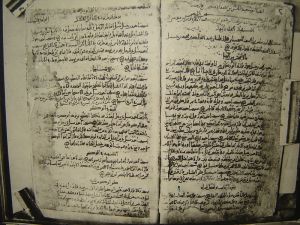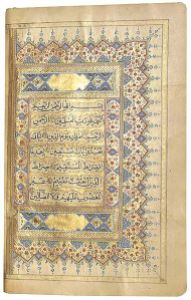
Dr. Adrian Holt: Asalaam O Aleckom Mani
I: Waleckom as Salaam Doc Jogi Jogi… how are you today?
Dr. Adrian Holt: I am fine thank you King Jogi, unluckily at work today and what about you?
I: I am fine as well thank you, just has plans to visit a Mufti today to get a fatwa on some property matter…
Dr. Adrian Holt: WHAT? Why a fatwa? Who do you want to get killed Jogi?
I: Wait, wait, hold on, Dr. Jogi, why would I want someone to be killed why do you say so?
Dr. Adrian Holt: Because, Mani, you only mentined that you are going to get a fatwa today on some property issue of yours, does not fatwa mean a denunciation admonition to behead someone?
During this brief course of conversation between my British friend Dr. Adrian Charles Holt and myself I just realized that Although the word has been recorded in the English language since 1625, the incident that brought it into worldwide consciousness took place in 1989. The most infamous of all fatwas took place on February 14 that year when Ayatollah Ruhollah Khomeini of Iran pronounced a death sentence on the novelist Salman Rushdie for his book The Satanic Verses. Khomeini could simply have written a book of his own countering Rushdie’s. Why not fight with ink instead of with blood? In Islam a fatwa could be a ruling on any point, and most fatwas are about day-to-day life. But given the ease with which fatwas seem to call for murder, the word is now synonymous with extreme condemnation of someone, up to death. The latest fatwa victim is a Seattle cartoonist and the person who issues a fatwa is one who is quite well versed in Islamic Law and is a jurist termed as a Mufti.
Following the Salman Rushdie affair, Western media frequently use the term to mean an Islamic death sentence upon someone who is considered an infidel, apostate or a blasphemer. This is indeed one possibility but is a rare use for a fatwa, and the equation of fatwa with capital punishment is considered offensive by many Muslims. Being a Salafist or the more popularly term known Wahabi and living in a country with Hanfi majority denouncing the Salafist I try to speak less on religion however the above conversation prompted me to write a new blog discussing various myths surrounding a fatwa which means a legal opinion or ruling issued by an Islamic scholar. A fatwa, is a considered opinion in Islam made by a mufti, a scholar capable of issuing judgments on Sharia or the Islamic law. Usually a fatwa is issued at the request of an individual or a judge to settle a question where fiqah Islamic jurisprudence is unclear. The term’s correct definition is broader, much broader indeed, since a fatwa may concern any aspect of individual life, social norms, religion, war, peace, Jihad and politics. Most Islamic opinions millions of fatwa have been issued over the 1,400 year history of Islam likely deal with issues faced by Muslims in their daily life, such as the customs of marriage, financial affairs, female circumcision or moral questions.  They are issued in response to questions by ordinary Muslims, and go unnoticed by those not concerned, while the much smaller number of fatwa issued on controversial subjects such as war, Jihad, constitutional rights, particularly by extremist preachers, sometimes get wide coverage in the media because of their political content. A fatwa is not automatically part of Islamic teachings however the person issuing it may intend to represent the teachings of Islam accurately, this does not mean that that person’s interpretation will gain universal acceptance.
They are issued in response to questions by ordinary Muslims, and go unnoticed by those not concerned, while the much smaller number of fatwa issued on controversial subjects such as war, Jihad, constitutional rights, particularly by extremist preachers, sometimes get wide coverage in the media because of their political content. A fatwa is not automatically part of Islamic teachings however the person issuing it may intend to represent the teachings of Islam accurately, this does not mean that that person’s interpretation will gain universal acceptance.
There are many conflicting schools within the religion, and even people within the same current of thought will sometimes rule differently on a difficult issue. This means that there are numerous contradictory fatwa, prescribing or proscribing a certain behavior. This puts the burden of choice on the individual Muslim, who, in case of conflict, will be forced to decide whose opinion is more likely to be correct. On the other hand, some fatwas are considered absolute. For Sunnis any fatwa is non-binding, whereas for Shias it could be considered by an individual as binding, depending on his or her relation to the scholar. Another argument prevailing around a fatwa is that not necessarily a formal position that a Mufti can only issue a fatwa since most Muslims argue that anyone trained in Islamic law may give an opinion or a fatwa on its teachings. If a fatwa does not break new ground, then it is simply called a ruling.
Now another hullabaloo contiguous to fatwa is whether a woman who has studied Sharia, Quran, Jurisprudence and Islamic Law and obtained the title of Muftia allowed in Islam to issue a fatwa as many people who call them pious in their own accord but are the true blasphemers in my opinion raises doubts to it and declare it to be a non Islamic act. However, in reality the truth is very different. As discussed above, that a fatwa, means a legal opinion, decree or ruling issued by an Islamic scholar termed as a mufti, the person who is quite well versed in Islamic Law, and is a jurist. All the four principle Imam’s of Islam known as A’immah Arba‘a, Imam Abu Hanifah Rehmatullah, Imam Malik ibn Anas Rehmatullah, Imam Abu Abdullah Muhammad ibn Idress al Shafi’i Rehmatullah and Imam Ahmad bin Muhammad bin Hanbal Abu `Abd Allah al-Shaybani Rehmatullah consensually agreed upon that a person without gender bias belonging to the male or female sexes who will generally go through an Iftaa course and the person should fulfill the eight conditions set by scholars in order that he or she may be able to issue verdicts or the fatwa.

The eight conditions are mastering the science of principles of jurisprudence, mastering the science of Hadith, mastering the science of Maqasid ash-Shari`ah or the bjectives of Shariah, mastering legal maxims, mastering the science of comparative religions, mastering the foundations of social sciences, knowing Arabic in fluency, and having sufficient knowledge of social realities. It is in no means compulsory to be a male gender only to issue a fatwa, and thus it is permissible in Islam for a woman to issue the decree as well.
Even in the period of Sahabis or the companions of the Prophet, many women used to issue fatwa and there are many Hadiths or the narrations concerning the words and deeds of the Islamic Prophet Muhammad (PBUH) and are regarded by the traditional Islamic schools of jurisprudence as important tools for understanding the Quran and in matters of Jurisprudence. Allama Ibn Qaim mentioned in his most famous book Aalaam al Mauqa’een that in the period of Sahaba, there were more than one hundred and thirty Muftis who used to issue the legal decree or the fatwa which included men and women and worth to mention the names of women who used to issue fatwa were Hadrat Aisha bint Abu Bakar, Umm e Salma Hind bint Abi Umayya and others were prominent Muftias.
Until recently many famous and outstanding Muftias have been issuing fatwas in full glory and confidence including the daughter of Hadrat Alamgir or more popularly known as the Last Mughal Emperor of India Aurangzeb upon whose order the book “Al Fatawa al Hindiya” was written as well was a great muftia of her time in the Moghul Empire of India. One of the earliest, most prominent and famous Persian historian and exegete of the Qur’an said that women without a doubt has a right to access of education and is without any second thought legal for them to become Muftia and issue fatwa. Nowhere does it say in Islam that the act of issuing a fatwa should be monopolized by men. It has been taken for granted because women in our culture were usually subdued and not included in this discipline. We can empower women who are willing to be muftias through adequate scholarly training. Once a girl is trained and educated to be a muftia, and granted a degree from an Ifta Council with the requisite legitimacy she can issue fatwas.



very informative article by the author , it increased my knowledge on the point, never knew tht women are elligible for issuing fatwas, but it is also very unfortunate that here in pakiatan we do not not have the trend of reserch and study any more, so as we do not have a univeristy like jama-et- ul azhar Cairo, but truly this feautre of islam like other features like ijtihad qayas , makes our beilief much stronger that islam is a religion of growth and it is a moderate religion .
Thank you for your article Mani, and for clarifying the meaning of the term Fatwa. We have known each other for many years now and over that time I have leaned so much about Islam from you. You bought me my first copy of the Koran and you have welcomed my questions about Islam, answering them with patience and honesty. You don’t even laugh at me when I show my naivety such as I did with the “Fatwa conversation”!! With your help, my knowledge of Islam and Islamic culture is growing and I hope, again with your help, it continues to develop. Thank you for being such a good and patient teacher!!
Oh My God! May Allah Subhan O Tallah Forgive Me, When People Start To Praise You, Then It Is Time To Start Asking The Almighty For Forgiveness. I am Glad Knowledge I Try To Share With You Is Of Use To You, My Only Aim Is To Reach Out Not Only To You But Many Others To Portray The Right Islam and Not Talibanised Version Which Is Fake. May Allah Tallah Help Me Continue In My Mission My Jihad…